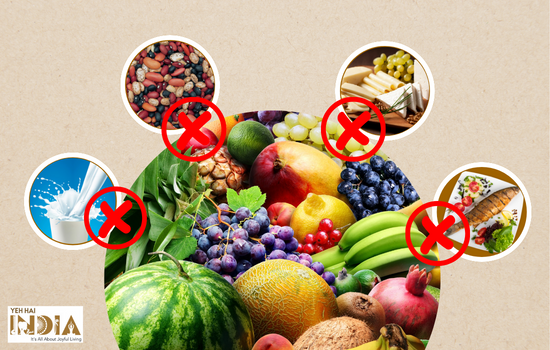Eliminating toxic food combinations from your diet is vital to secure all the benefits an Ayurvedic diet has to offer.
Ayurvedic diet is an ancient Indian dietary practice that is based on the fundamental principles of balance, moderation and individualized nutrition.
The diet focuses on eating whole, natural foods that are compatible with an individual’s body type.
The Ayurvedic diet is composed of a balance of six tastes- sweet, sour, salty, bitter, pungent, and astringent – and organized into three main categories: sattvic, rajasic, and tamasic.
Sattvic food is considered to be the most beneficial, offering the highest level of mental clarity, alertness, and overall health.
Rajasic foods are those that are stimulating and energising, while tamasic foods are more calming and grounding.
The Ayurvedic diet also stresses the importance of eating seasonal foods, eating in moderation, and eating at the appropriate times.
Eating in accordance with Ayurvedic principles can help an individual achieve physical, emotional, and spiritual balance, which is the goal of the lifestyle.
Importance of a balanced meal as per Ayurveda
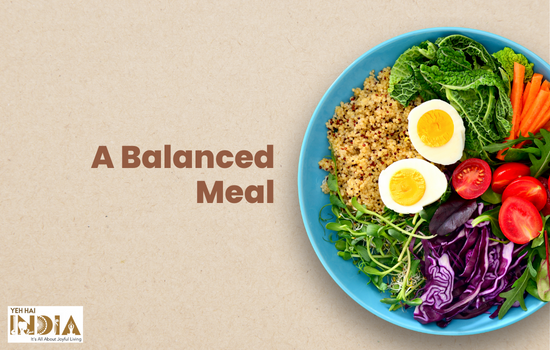
Ayurveda recommends taking meals in moderation at regular intervals, paying special focus to the right food combinations.
Developing awareness of the wrong food combinations is the first step towards formulating the right kind of diet for your body.
Whenever you experience trouble in digesting food and notice your energy levels vary vary, analysing what and when you ate the last meal before these issues will help solve half your problems.
Being aware of how your system feels after consumption of certain food combinations helps you decide what works and what doesn’t.
The changes we want to make on a daily basis cannot be tackled in one single day. What we can do is maybe, start by changing one food combination at a time that does not work.
While completely avoiding all improper food combinations could be ideal, it is beneficial to at least reduce the frequency of bad food pairs.
Food Pairings to Avoid:
| Food Groups | Incompatible Foods |
| Beans | Fruits Cheese Eggs Milk Fish Meat Yoghurt |
| Eggs | Fruits like Melons Beans Cheese Fish Milk |
| Fruits | With any other food. (Exceptions include dates, milk which have the same rasa as fruits) |
| Grains | Fruits-Tapioca |
| Honey | Ghee-Honey is also not advised to be consumed together in any form whether boiled or cooked. |
| Hot Drinks | Mangoes Cheese Fish Meat Starch Yoghurt |
| Lemons | Cucumbers Milk Tomatoes Yoghurt |
| Melons | Melons should not be taken along with any other food especially dairy, eggs, fried food, starch, grains. |
| Milk | Bananas Cherries Melons Sour fruits Bread with Fish-Meat-Yoghurt |
| Nightshades | Cucumber Melons Dairy products |
| Radish | Bananas Raisins Milk |
| Tapioca | Fruits Bananas Mangoes Beans Raisins Jaggery |
| Yoghurt | Fruits Cheese Eggs Fish Hot drinks Meat-Milk-Nightshades |
1. Fruits
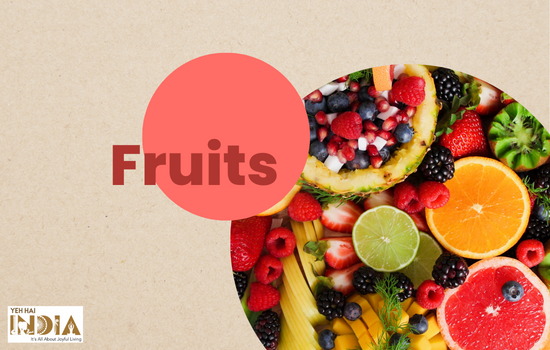
Fruits should be eaten alone because they are more easily digested when eaten by themselves. Eating fruits with other foods can slow down digestion and make it more difficult for the body to absorb the nutrients.
Eating fruits separately also allows you to better enjoy their flavour and maximize their nutritional benefits.
Recommended Story – Ayurvedic Diet: 10 Rules To Stick To For Disease Free Life
2. Beans
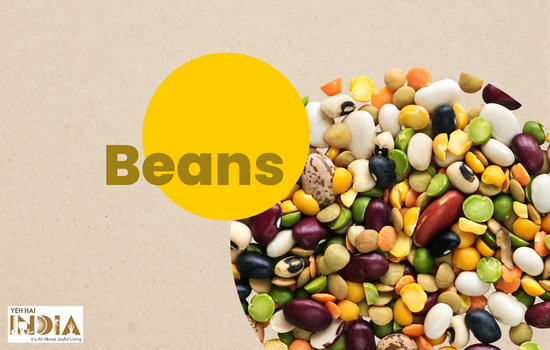
Beans should not be combined with dairy, fruits, or meat because beans contain complex proteins and starches which can be difficult to digest.
Dairy and meat are both high in fat and proteins, which can slow down the digestion of beans and lead to digestive discomfort. Fruits contain enzymes that can inhibit the digestion of beans.
3. Milk
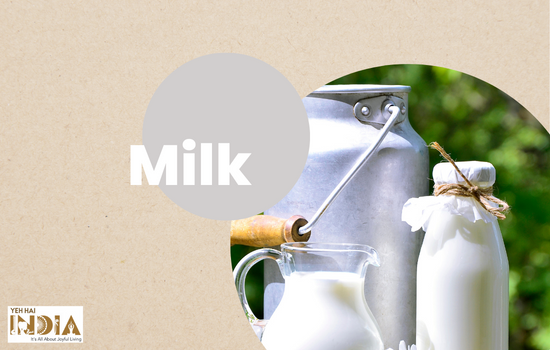
Milk should not be combined with bananas, cherries, melons and yoghurt because these foods contain enzymes that can break down the proteins in milk, making it difficult to digest.
This can cause digestive issues and can even lead to food allergies. Additionally, the combination of these foods and milk can create an unpleasant flavour.
4. Eggs

Eggs should not be combined with beans, fruits, cheese, milk, and fish because these foods contain high amounts of protein and can cause an upset stomach when eaten together.
The body has difficulty digesting large amounts of protein at once, which can lead to digestive issues like bloating, nausea, and cramping.
5. Lemons
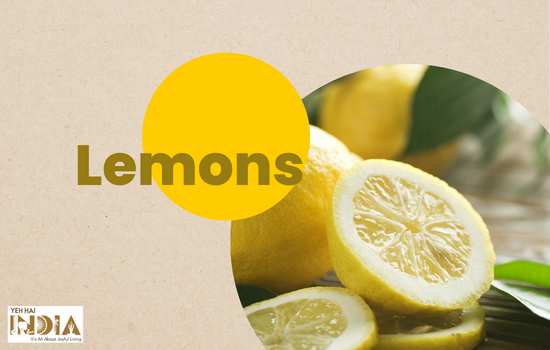
Lemons should not be combined with cucumbers, milk, tomatoes and yoghurt because they contain different acids and pH levels.
The acidic nature of lemons can react with the other ingredients and cause an unpleasant flavour.
Additionally, the citric acid in lemons can cause the milk to curdle, the tomatoes to become sour, and the yoghurt to separate.
6. Yoghurt
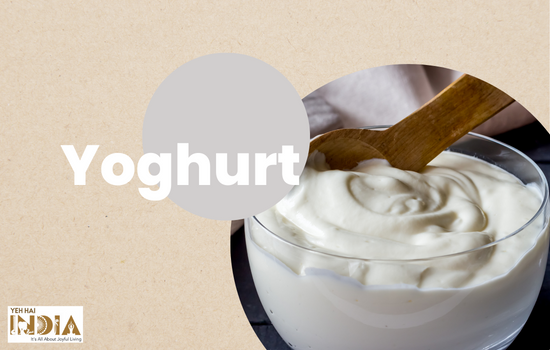
Yoghurt is an acidic food and can be easily spoiled when combined with other acidic or dairy foods.
Fruits, cheese, eggs, fish, hot drinks, and milk are all acidic or dairy-based, so combining them with yoghurt can cause the yoghurt to spoil quickly.
Nightshades, such as tomatoes and peppers, can also cause digestive issues when combined with yoghurt. Therefore, it is best to avoid combining yoghurt with these items.
Recommended Story – Why Restricting Fats in Your Diet Does Not Lead To Weight Loss? – By Shilpi Goel
7. Tapioca
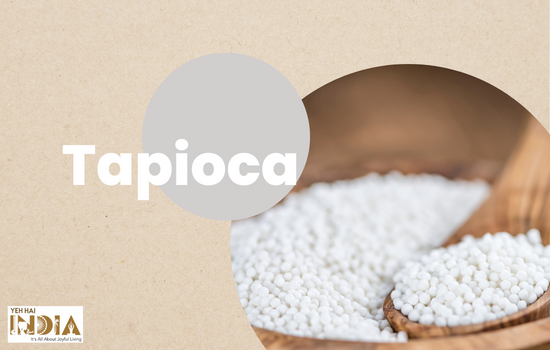
Tapioca is from the cassava root, which is a starchy tuber. It is commonly consumed as a pudding or a snack.
Fruits, bananas, mangoes, beans, raisins and jaggery are not ideal accompaniments to tapioca because they are all high in sugar and can cause an unpleasant taste when mixed together.
Tapioca should be combined with savoury ingredients such as vegetables and spices to create a balanced meal.
8. Radish
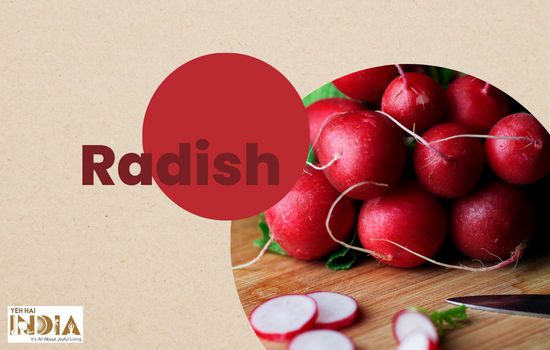
Radish should not be combined with bananas, raisins, and milk because of the strong flavour of the radish. Radish has a strong, pungent taste that can easily overpower the sweetness of the other ingredients.
Additionally, the texture of the radish does not complement the other ingredients, making for an unpleasant eating experience.
9. Nightshades
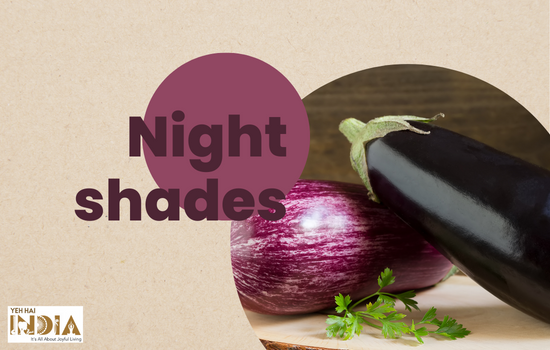
Nightshades are part of the Solanaceae family, which includes tomatoes, potatoes, eggplants, peppers, and certain spices.
They contain a toxic compound called solanine which can irritate the digestive tract and cause inflammation.
When combined with cucumbers, melons, and dairy products, nightshades can increase the levels of solanine in the digestive tract and make it more difficult for the body to absorb the nutrients from these foods.
This can lead to symptoms such as abdominal discomfort, diarrhoea, and even headaches.
Tips to help with effects of bad food combinations:
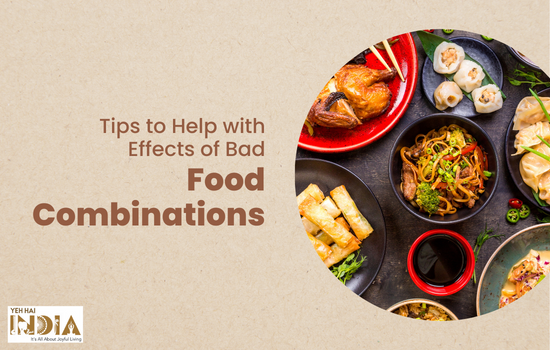
- A person’s natural body fire for digestion is the best tool to fight indigestion due to bad food pairings.
- In some pairings, like ghee and honey, can work if the quantities are adjusted appropriately. Equal measures of honey and ghee are toxic whereas 2:1 of ghee and honey respectively is digestible.
- Dishes can incorporate spices and herbs that work on making them easily ingested without negative effects.
- There are times when our bodies can become used to the bad food pairs if they have been consumed over a long period of time. However, it is not advisable to continue doing so.
- You can make use of ingredients with an antidote effect, such as ghee and black pepper in potatoes or cardamom in coffee. It helps with the negative effect caused such as gas or acidity.
Summary:
Certain food combinations can be difficult for our bodies to digest, leading to digestive issues such as bloating, gas, and general discomfort. Additionally, some food combinations can interfere with the absorption of nutrients, resulting in deficiencies.
Foods that are high in protein and fat, such as red meat and dairy, should not be combined as they can be difficult to digest. Similarly, combining acidic foods with starchy foods can cause digestive distress.
Finally, combining fruits and vegetables can also be difficult for our bodies to digest, as the different digestive times can lead to fermentation in the stomach.
Give yourself the freedom to choose the right food combinations to avoid the unwanted effects that certain foods might bring, when taken together.
Also Read – Famous Top 10 Nutritionists (Best Dietician) to Follow in India


